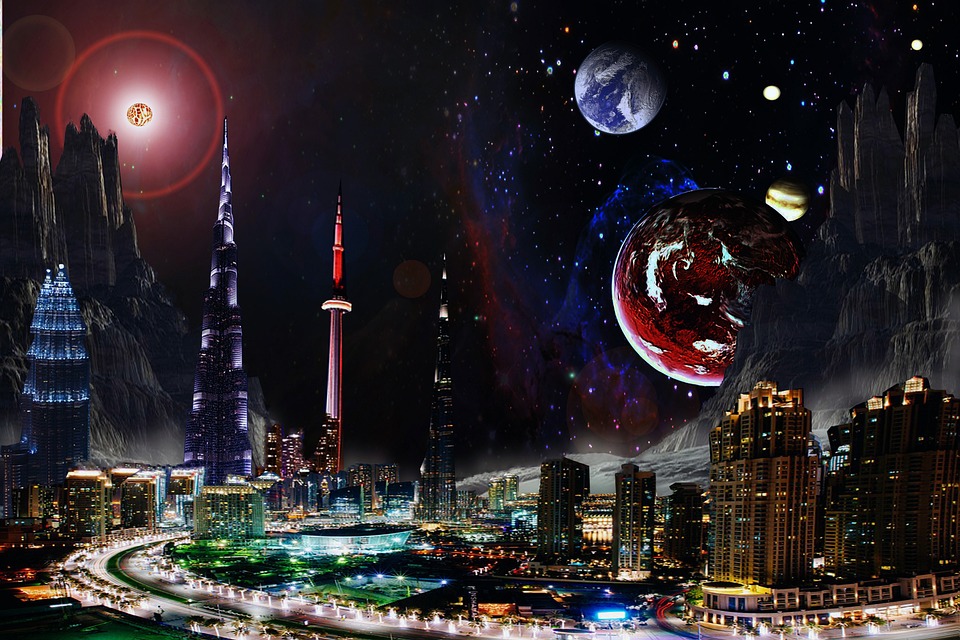Introduction
In today’s rapidly evolving digital landscape, the intersection of artificial intelligence (AI) and content creation is transforming the way we generate, consume, and interpret information. From automating mundane tasks to enhancing creative processes, AI is not just a tool but a revolutionary force reshaping the content creation process. This article explores the multifaceted impact of AI on content creation, the opportunities it presents, and the challenges it poses.
The Role of AI in Content Creation
AI has been making waves across diverse industries, and content creation is no exception. By leveraging machine learning algorithms, natural language processing (NLP), and data analytics, AI is enabling content creators to produce high-quality content efficiently and effectively.
Automating Routine Tasks
One of the most significant contributions of AI in content creation is the automation of routine tasks. Automated content generation, for instance, allows for the creation of simple news reports, product descriptions, and financial summaries. This automation not only saves time but also allows human creators to focus on more strategic and creative tasks.
Enhancing Creativity
Contrary to the fear that AI might replace human creativity, it often acts as an enhancer. AI tools can suggest topics, generate ideas, and even help in structuring content. By analyzing large datasets, AI can identify trends and insights that might be overlooked by human analysts, thereby inspiring unique angles and narratives.
AI-Powered tools and Platforms
The advent of AI-powered tools and platforms has democratized content creation. Whether you’re a seasoned journalist or an aspiring blogger, AI tools like Grammarly, Jasper AI, and Canva’s Magic Write are at your disposal, offering instant access to powerful capabilities that streamline the creative process.
Natural Language Processing (NLP)
NLP is at the heart of many AI-driven content tools. It enables machines to understand, interpret, and generate human language, paving the way for applications like chatbots, voice assistants, and content generation platforms. These applications are transforming how we interact with technology and consume content.
Content Personalization
AI’s ability to analyze user data allows for a level of content personalization that was previously unimaginable. Personalized content recommendations, tailored emails, and customized advertisements are now standard practices, enhancing user engagement and fostering brand loyalty.
Challenges and Ethical Considerations
Despite the benefits, the integration of AI in content creation is not without challenges. Ethical considerations, data privacy, and the risk of misinformation are critical issues that need to be addressed.
Quality versus Quantity
While AI can generate content at an unprecedented scale, ensuring quality remains a challenge. There’s a risk of prioritizing quantity over quality, leading to content that lacks depth, nuance, and authenticity.
Bias and Misinformation
AI systems are only as good as the data they are trained on. If the data contains biases, the AI’s outputs will reflect those biases. Additionally, AI’s ability to generate content raises concerns about misinformation and the spread of fake news, necessitating robust fact-checking and verification processes.
Privacy Concerns
The use of AI in analyzing user data for content personalization raises significant privacy concerns. Ensuring that user data is collected, stored, and used responsibly is critical to maintaining trust and compliance with regulations like GDPR and CCPA.
The Future of Content Creation
As AI continues to evolve, the future of content creation is poised for further transformation. The symbiotic relationship between human creativity and AI’s computational prowess is likely to yield innovative and engaging content experiences.
Augmented Creativity
The future will likely see more sophisticated AI tools that not only assist in content creation but also augment human creativity. We can expect AI to take on more complex tasks, freeing human creators to focus on ideation and conceptualization.
Collaborative AI
Collaboration between humans and AI will become more seamless, with AI acting as a creative partner rather than a mere tool. This collaboration holds the potential to push the boundaries of storytelling, art, and innovation.
Emerging Technologies
Emerging technologies such as Virtual reality (VR), augmented reality (AR), and the Metaverse will further expand the possibilities of content creation. AI will play a crucial role in developing immersive content experiences that engage audiences in new and exciting ways.
Conclusion
AI is reshaping the content creation process in profound ways, offering opportunities for efficiency, creativity, and personalization. However, it also brings challenges that need to be addressed to ensure ethical and responsible use. As we navigate this evolving landscape, the collaboration between human creativity and AI’s capabilities promises to unlock new frontiers in content creation.
FAQs
1. How is AI used in content creation?
AI is used in content creation to automate routine tasks, enhance creativity, and personalize content. It leverages machine learning algorithms and natural language processing to generate, analyze, and optimize content efficiently.
2. Can AI replace human content creators?
While AI can automate certain aspects of content creation, it is unlikely to replace human creators entirely. Instead, AI acts as a tool that enhances creativity and efficiency, allowing human creators to focus on strategic and conceptual tasks.
3. What are the ethical concerns associated with AI in content creation?
Ethical concerns include ensuring data privacy, avoiding bias in AI-generated content, and preventing the spread of misinformation. It’s crucial to implement robust fact-checking processes and maintain transparency in AI-driven content creation.
4. How does AI personalize content?
AI personalizes content by analyzing user data to identify preferences and behaviors. It uses this information to deliver tailored content recommendations, customized advertisements, and personalized communication, enhancing user engagement and experience.
5. What is the future of AI in content creation?
The future of AI in content creation lies in augmented creativity, seamless collaboration between humans and AI, and the integration of emerging technologies like VR, AR, and the Metaverse. These advancements promise to redefine how we create and consume content.
Discover more from System Ent Corp
Subscribe to get the latest posts sent to your email.

